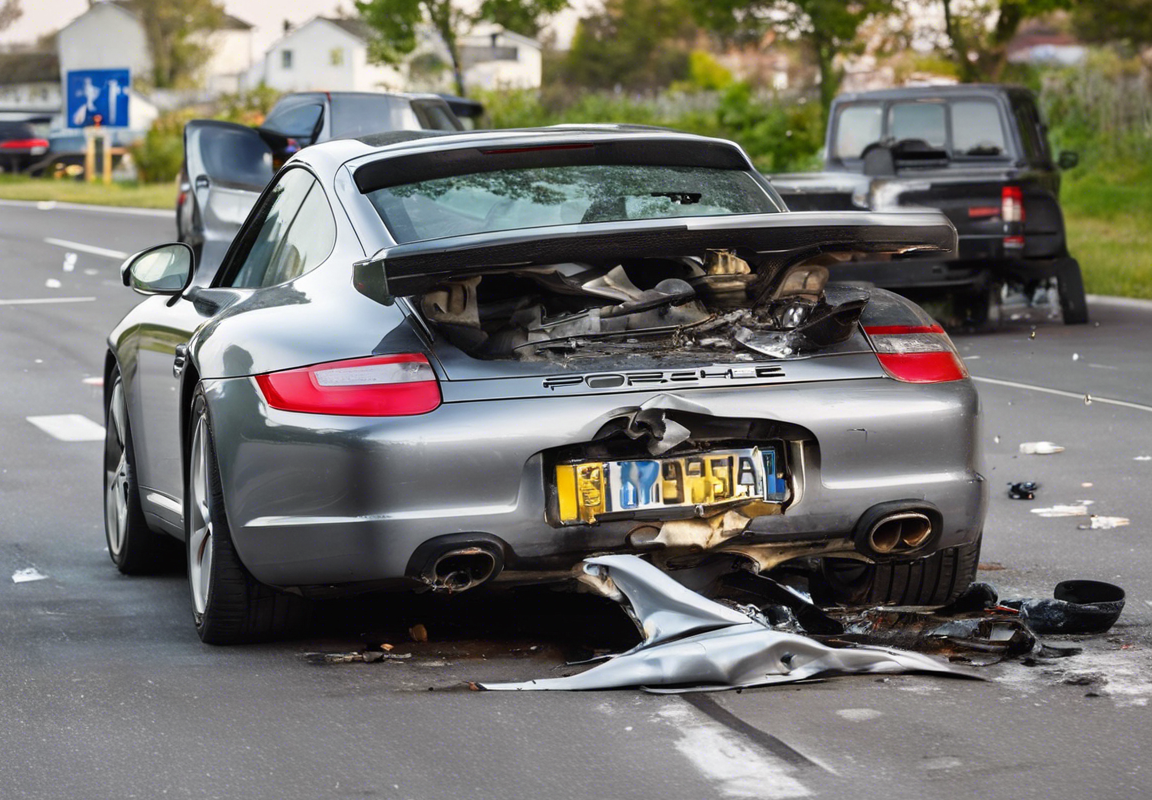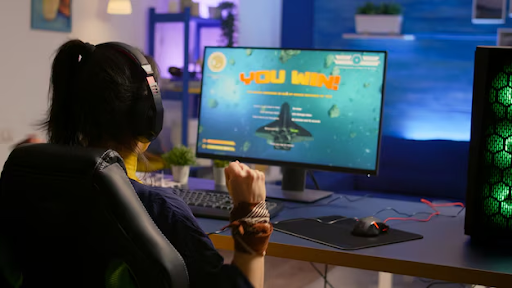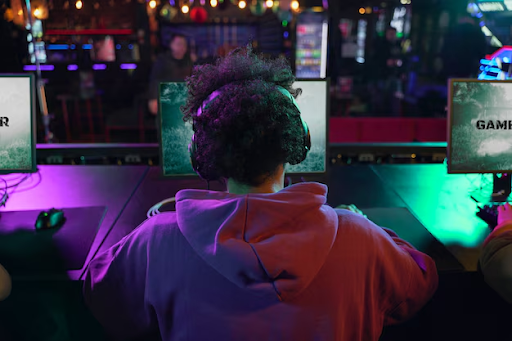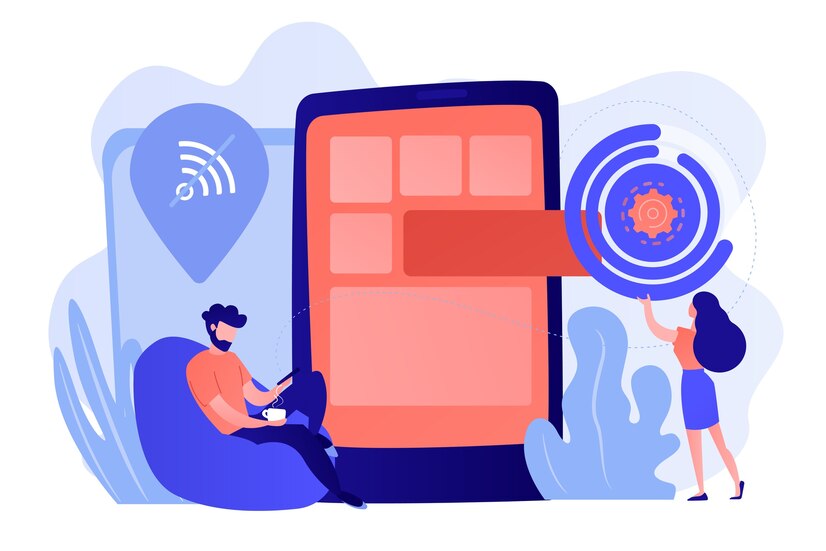Being a parent comes with its fair share of challenges, and one of the most nerve-wracking moments for any parent is when their teenager gets behind the wheel of a car. The thought of them driving solo can fill even the most laid-back parent with anxiety. And for one family, that anxiety turned into a nightmare when their teenager crashed their Porsche. It was a wake-up call that no parent wants to experience, but it led to valuable lessons in parenting and responsibility.
The Incident
The day started like any other for the Johnson family. Their 16-year-old son, Tom, had recently obtained his driver’s license and was eager to show off his newfound freedom. His parents, although apprehensive, allowed him to take their Porsche for a spin around the neighborhood. What they didn’t expect was the phone call that would come just an hour later – Tom had crashed the car into a tree, causing significant damage.
Lesson Learned: Communication is Key
The aftermath of the accident was a whirlwind of emotions – shock, anger, and relief that Tom was physically unharmed. But amidst the chaos, the Johnsons realized that they had overlooked a crucial aspect of parenting: communication. They had assumed that Tom understood the responsibilities of driving a car without actually discussing the potential risks and expectations.
Setting clear expectations
One of the key takeaways from this experience was the importance of setting clear expectations with your teenager when it comes to driving. Parents should outline rules, consequences for breaking those rules, and the importance of following safe driving practices. By having an open and honest conversation with your teen, you can ensure they understand the seriousness of being behind the wheel.
Establishing trust
Trust is a two-way street, and it is vital in the parent-teenager relationship, especially when it comes to driving. Parents need to trust their teenager to make responsible decisions, while teenagers need to trust that their parents have their best interests at heart. Building a foundation of trust through open communication can help prevent misunderstandings and promote safe driving habits.
Lesson Learned: Education is Empowerment
Following the accident, the Johnsons realized that they had underestimated the importance of educating their teenager about safe driving practices. While Tom had completed a driver’s education course to obtain his license, there were still gaps in his knowledge and experience that left him vulnerable on the road.
Continued learning
The incident served as a wake-up call for the Johnson family to prioritize ongoing education when it comes to driving. They enrolled Tom in advanced driving courses, where he learned defensive driving techniques, how to handle emergency situations, and the importance of staying focused behind the wheel. By investing in their teenager’s education, the Johnsons empowered him to become a safer and more confident driver.
Leading by example
Parents are the primary role models for their children, and this holds true when it comes to driving habits. The Johnsons recognized that they needed to lead by example and demonstrate safe and responsible driving behaviors. By practicing what they preached, they not only ensured their own safety on the road but also instilled valuable lessons in their teenager.
Lesson Learned: Consequences Breed Accountability
In the aftermath of the crash, the Johnsons faced the challenge of addressing the consequences of their teenager’s actions. While it was easy to assign blame and mete out punishment, they understood that this was a pivotal moment to teach their teenager about accountability and taking ownership of one’s mistakes.
Accepting responsibility
Instead of placing the blame solely on their teenager, the Johnsons encouraged Tom to take responsibility for his actions. By acknowledging his mistake and understanding the impact it had on himself and his family, Tom learned the importance of accountability. This lesson in accountability would shape his future decisions on the road and beyond.
Teaching resilience
Mistakes are a part of life, and the Johnsons used this opportunity to teach their teenager about resilience. They emphasized the importance of learning from setbacks, bouncing back from challenges, and using these experiences to grow and improve. By instilling a sense of resilience in their teenager, the Johnsons equipped him with the tools to overcome obstacles and make better choices in the future.
Lesson Learned: Support is Non-Negotiable
Throughout the entire ordeal, the Johnsons realized the significance of support in navigating the challenges of parenting a teenager. The unconditional love and guidance they provided their teenager not only helped him through a difficult time but also strengthened their bond as a family.
Emotional support
The emotional toll of a car accident can be overwhelming for a teenager, and the Johnsons made it a priority to provide emotional support to their son. They listened to his concerns, validated his emotions, and offered reassurance during a tumultuous time. By being there for their teenager, the Johnsons demonstrated that they were a source of comfort and stability he could rely on.
Practical support
In addition to emotional support, the Johnsons offered practical assistance to help their teenager navigate the aftermath of the accident. From handling insurance claims to arranging for car repairs, they stood by their son’s side every step of the way. By providing practical support, the Johnsons alleviated some of the stress and burden that their teenager was facing, allowing him to focus on moving forward.
Conclusion
The experience of their teenager crashing their Porsche was a turning point for the Johnson family, prompting them to reflect on their approach to parenting and the responsibilities that come with raising a teenager. Through open communication, ongoing education, teaching accountability, and providing unwavering support, the Johnsons emerged from the ordeal with valuable lessons learned and a stronger, more resilient family bond.
FAQs (Frequently Asked Questions)
1. How can I prepare my teenager for safe driving practices?
To prepare your teenager for safe driving practices, have open and honest conversations about the responsibilities of driving, set clear expectations and rules, prioritize ongoing education through advanced driving courses, and lead by example by demonstrating safe driving behaviors.
2. How do I teach my teenager about accountability after a driving mistake?
Encourage your teenager to take responsibility for their actions, acknowledge their mistake, understand the consequences of their behavior, and use the experience as a learning opportunity to grow and make better decisions in the future.
3. What role does emotional support play in parenting a teenager after a car accident?
Emotional support is crucial in parenting a teenager after a car accident as it helps them cope with the emotional toll of the experience, provides reassurance, and strengthens the parent-teenager bond during a challenging time.
4. Why is ongoing education important for young drivers?
Ongoing education for young drivers is important as it equips them with essential skills, such as defensive driving techniques, handling emergency situations, and staying focused on the road, to become safer and more confident drivers.
5. How can parents demonstrate trust in their teenagers’ driving abilities?
Parents can demonstrate trust in their teenagers’ driving abilities by setting clear expectations, having open communication, leading by example, and providing opportunities for their teenagers to prove their responsibility and build trust through safe driving practices.






